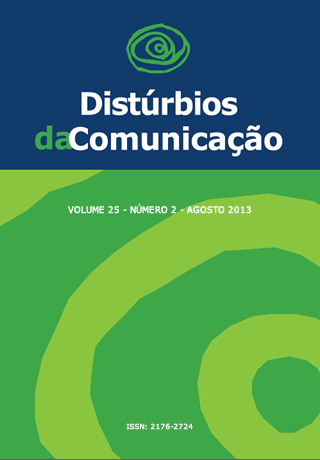Aspectos de linguagem e motricidade oral observados em crianças atendidas em um setor de estimulação precoce
Palavras-chave:
estimulação precoce, fonoaudiologia, desenvolvimento infantilResumo
Introdução: A estimulação precoce é definida como uma técnica terapêutica que aborda, de forma elaborada, diversos estímulos que podem intervir na maturação da criança, com a finalidade de estimular e facilitar posturas que favoreçam o desenvolvimento motor e cognitivo de crianças com alguma deficiência. Objetivo: expor os resultados obtidos através da instrumentalização fonoaudiológica à profissional que atua em um Setor de Estimulação Precoce de uma instituição sem fins lucrativos do sul do país. Método: Avaliou-se 11 sujeitos com idade entre 12 meses a 4 anos. Destes, 3 possuem diagnóstico de Síndrome de Down, 4 de Paralisia Cerebral e 4 crianças apresentavam atraso no desenvolvimento neuropsicomotor. Para as avalições empregou-se o Protocolo de Observação Comportamental – PROC (2004) e partes do protocolo MBGR (2009). Resultados: Todas as crianças acompanhadas apresentaram melhoras, tanto no aspecto de linguagem, quanto em relação a aspectos orofaciais. Dentre os sujeitos, as crianças com atraso no desenvolvimento neuropsicomotor foram as que demostraram maiores progressos. Destaca-se também a melhora do tônus das estruturas do sistema estomatognático das crianças com Síndrome de Down. Conclusão: Salienta-se, com os resultados obtidos, o mérito da estimulação precoce adequada nos primeiros anos de vida, evidenciando o seu papel na maturação cerebral de crianças com necessidades especiais e destacando o papel do fonoaudiólogo nesse trabalho.
Downloads
Métricas
Downloads
Publicado
Edição
Seção
Licença
Copyright (c) 2013 Vanessa Giacchini, Aline Tonial, Helena Bolli Mota

Este trabalho está licenciado sob uma licença Creative Commons Attribution 4.0 International License.









